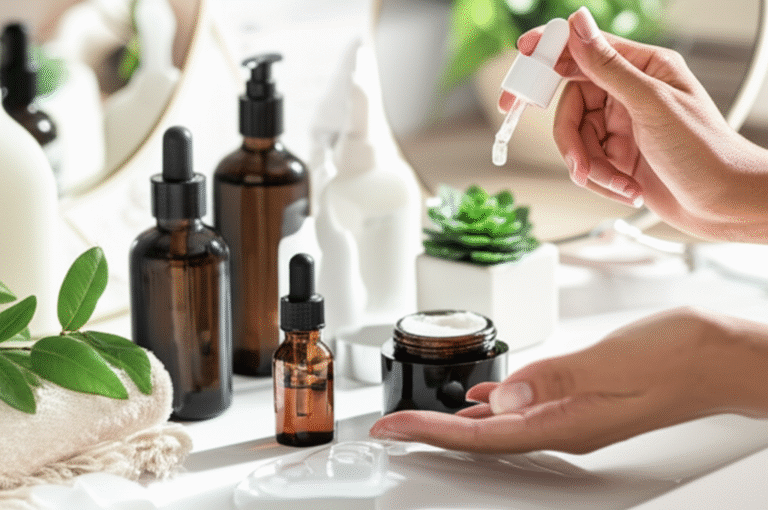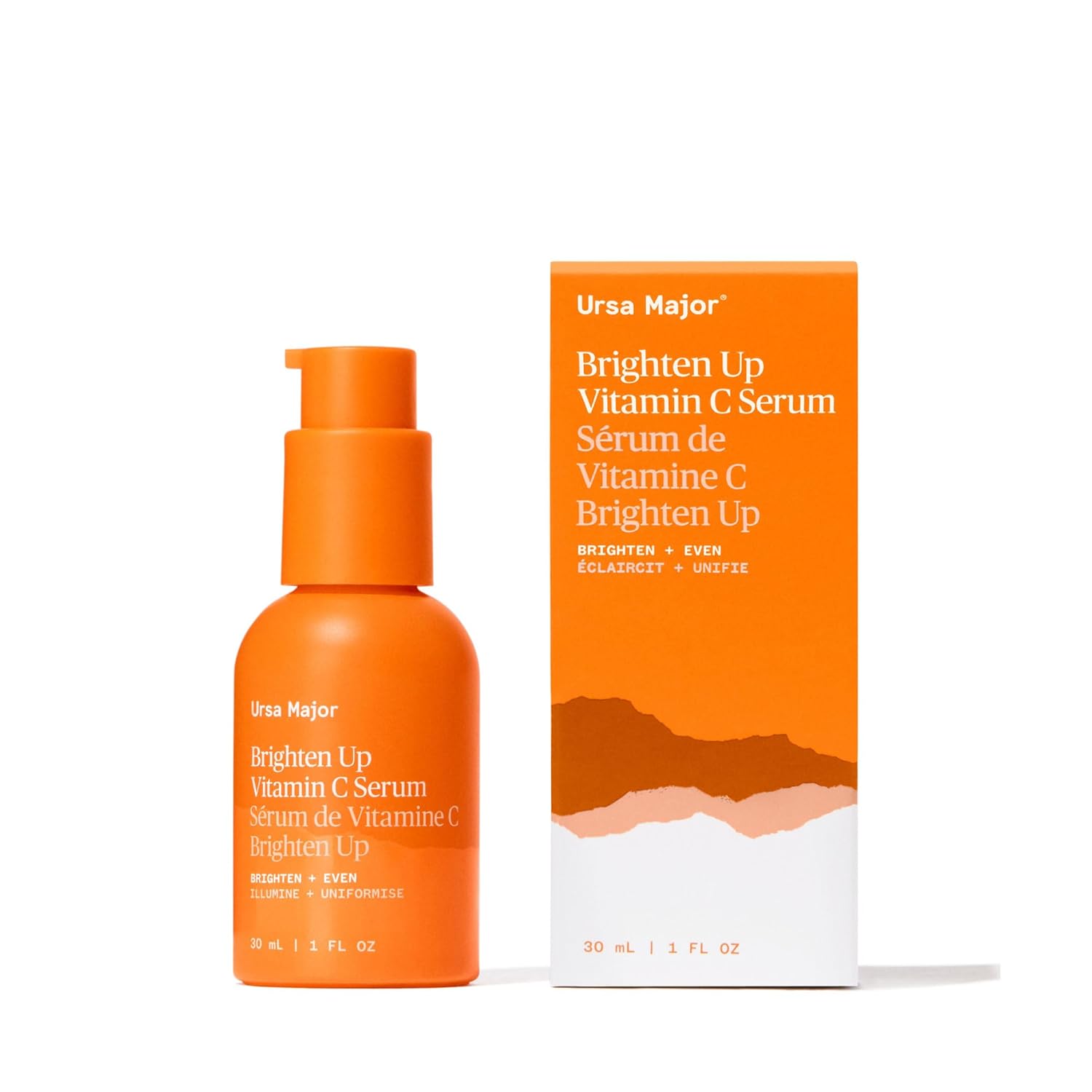Struggling with acne on darker skin tones? Discover genius solutions with our guide to the best black skin care products for acne. We’ll help you find effective, gentle, and affordable options to achieve a clear, radiant complexion.
Dealing with acne can be a real bummer, right? Especially when you’re not sure which products will work best for your unique skin. Many people with darker skin tones find that acne can sometimes leave behind post-inflammatory hyperpigmentation (those dark spots) or can be more prone to dryness or oiliness. It’s a common frustration, but the good news is there are fantastic skin care solutions out there specifically designed to tackle acne without causing irritation or worsening dark marks. We’re here to break it down, step-by-step, so you can feel confident and see amazing results. Get ready to unlock your clearest, most glowing skin yet!
Understanding Acne on Deeper Skin Tones

It’s important to know that acne itself isn’t caused by race or skin tone. However, how acne manifests and how the skin heals can differ across various skin tones. For those with darker skin, acne breakouts can sometimes lead to hyperpigmentation, where the skin darkens in the affected area after the pimple heals. This is due to an increase in melanin production as the skin tries to repair itself. Additionally, some acne treatments can be drying or irritating, which can be a bigger concern for skin that might already be prone to dryness or oiliness. Finding the right balance is key.
A key factor to remember is that skin of color often has a richer amount of melanin, which gives it its beautiful color. While this offers natural protection against UV rays, it also means that inflammation, like that from acne, can result in longer-lasting marks. Understanding this difference helps in choosing products that target acne effectively without exacerbating hyperpigmentation.
Why Specific Products Matter
Finding the right “black skin care products for acne” means looking for ingredients that fight breakouts while being mindful of potential melanin-related concerns like hyperpigmentation and ensuring the products are suitable for your skin’s natural balance. Many general acne products can be too harsh, leading to redness, peeling, or an increase in dark spots. Targeted solutions are designed to be effective yet gentle.
When selecting products, think about ingredients that address both the acne and potential post-acne marks. This approach is crucial for achieving not just clear skin, but also an even-toned complexion.
Key Ingredients to Look For
Choosing the right ingredients is like having a secret weapon against acne. For deeper skin tones, it’s smart to pick ingredients that fight pimples and help fade those pesky dark spots.
Here are some of the best ingredients to seek out in your “black skin care products for acne”:
- Salicylic Acid (BHA): This is a superstar for acne! It’s oil-soluble, meaning it can penetrate deep into your pores to unclog them, reduce inflammation, and prevent breakouts. It’s generally well-tolerated.
- Niacinamide (Vitamin B3): This multi-tasker is amazing! It helps to reduce inflammation, control oil production, improve the skin’s barrier function, and significantly fade hyperpigmentation and dark spots. It’s a must-have for many.
- Azelaic Acid: Known for its anti-inflammatory and antibacterial properties, azelaic acid is excellent for treating acne and also helps to reduce redness and fade post-inflammatory hyperpigmentation. It’s often a gentler option.
- Retinoids (like Retinol or Adapalene): These Vitamin A derivatives are powerful acne fighters. They promote cell turnover, which helps to unclog pores and prevent new breakouts. They can also help with hyperpigmentation and skin texture over time. Start with a low concentration and use them a few times a week. According to the American Academy of Dermatology, retinoids are often a first-line treatment for acne.
- Vitamin C (Ascorbic Acid): A potent antioxidant that brightens skin and fades dark spots. It also has anti-inflammatory properties that can help calm acne.
- Hyaluronic Acid: While not directly treating acne, this ingredient is crucial for keeping skin hydrated. Acne treatments can sometimes be drying, and keeping your skin moisturized helps maintain its barrier and prevent over-production of oil.
- Licorice Extract: This natural ingredient has wonderful skin-brightening properties that can help reduce the appearance of dark spots left by acne.
Selecting products with a combination of these ingredients can provide a comprehensive approach to managing acne and its after-effects on darker skin tones.
Building Your Acne-Fighting Routine: Step-by-Step
Creating an effective skincare routine doesn’t have to be complicated. Consistency is key. Here’s a simple, step-by-step guide for managing acne, focusing on gentle yet effective practices for darker skin tones.
Step 1: Cleansing
Start your day and end it with a gentle cleanser. Look for fragrance-free, non-comedogenic (won’t clog pores) formulas.
- Morning: A gentle gel or foam cleanser to remove excess oil and impurities.
- Evening: A slightly more thorough cleanse, perhaps a cream or balm cleanser if you wear makeup, followed by your treatment cleanser if needed (e.g., one with salicylic acid, but not necessarily every night).
Avoid harsh scrubbing, which can worsen inflammation and hyperpigmentation.
Step 2: Toning (Optional but Recommended)
A toner can help balance your skin’s pH, remove any leftover residue, and prep your skin for serums and treatments. Opt for alcohol-free toners with ingredients like niacinamide or witch hazel.
Step 3: Acne Treatments
This is where your targeted active ingredients come in.
- Morning: Apply a serum with Vitamin C or niacinamide to help with brightening and inflammation.
- Evening: Apply your acne treatment. This might be a spot treatment with benzoyl peroxide (use sparingly, can bleach fabric!) or salicylic acid, or a thinner layer of a retinoid or azelaic acid for overall acne control.
Remember to introduce new active ingredients gradually. Applying them only a few nights a week initially can help your skin adapt and minimize irritation.
Step 4: Moisturizing
Don’t skip this step, even if you have oily skin! Hydrated skin is healthy skin. Look for lightweight, oil-free, non-comedogenic moisturizers. Ingredients like hyaluronic acid and ceramides are excellent for keeping skin hydrated and supporting its barrier function.
Step 5: Sun Protection (Crucial!)
This is perhaps the MOST important step for preventing and fading dark spots. UV rays can darken existing acne marks and make them harder to treat.
- Use a broad-spectrum SPF 30 or higher sunscreen every single day, even when it’s cloudy.
- Mineral sunscreens (with zinc oxide and titanium dioxide) are often a great choice for sensitive skin and can help calm inflammation. Many new formulations are sheer and don’t leave a white cast on deeper skin tones.
Pro Tip: If you’re using retinoids or certain acids, your skin will be more sensitive to the sun, making daily SPF application non-negotiable. The Skin of Color Society emphasizes the critical role of sun protection for all skin tones, including darker complexions, to prevent hyperpigmentation.
Product Recommendations: Navigating the Options
Choosing the right products can feel overwhelming, but focusing on brands and formulations that understand the nuances of deeper skin tones is a great starting point. Here are some product categories and examples of what to look for.
Cleansers
Look for gentle, hydrating cleansers that effectively remove impurities without stripping the skin.
| Product Type | Key Ingredients to Seek | What to Look For |
|---|---|---|
| Gentle Gel Cleanser | Glycerin, Hyaluronic Acid | “Sulfate-free,” “non-comedogenic,” “for all skin types” |
| Salicylic Acid Cleanser (Use 1-3 times/week) | Salicylic Acid (0.5% – 2%) | “Dermatologist tested,” “gentle foaming” |
| Cream Cleanser | Ceramides, Shea Butter | “For dry or sensitive skin,” “hydrating” |
Treatments & Serums
These potent formulas directly target acne and hyperpigmentation.
| Product Type | Key Ingredients | Benefits for Darker Skin |
|---|---|---|
| Niacinamide Serum | Niacinamide (5%-10%) | Reduces inflammation, controls oil, fades dark spots. |
| Azelaic Acid Treatment | Azelaic Acid (5%-10%) | Fights acne and reduces redness/hyperpigmentation. |
| Salicylic Acid Treatment | Salicylic Acid (1%-2%) | Unclogs pores, reduces blackheads and whiteheads. |
| Vitamin C Serum | L-Ascorbic Acid (10%-20%) | Brightens complexion, fades dark marks, antioxidant protection. |
| Retinol Serum (Start Low!) | Retinol (0.1%-0.5%) or Adapalene | Increases cell turnover, treats stubborn acne, improves texture and tone. |
When starting with retinoids or high-percentage actives, begin on a few nights per week and gradually increase frequency as your skin tolerates it. This is crucial to avoid excessive dryness or irritation, which can worsen hyperpigmentation.
Moisturizers
Keeping your skin hydrated is vital for its health and for supporting the healing process.
- Lightweight Lotions/Gels: Ideal for oily or combination skin. Look for ingredients like hyaluronic acid, glycerin, and ceramides.
- Barrier Repair Creams: If your skin feels compromised or very dry from treatments, a slightly richer, yet still non-comedogenic, cream with ceramides can be very beneficial.
Ensure the term “non-comedogenic” is on the label.
Sunscreen
Your shield against hyperpigmentation.
- Mineral Sunscreens (Zinc Oxide, Titanium Dioxide): Often preferred for sensitive, acne-prone skin. Many brands now offer micronized or tinted formulas that blend seamlessly into darker skin tones without a white cast.
- Chemical Sunscreens: Can also be effective. Look for broad-spectrum SPF 30+ and test a small amount to ensure no irritation.
The “National Center for Complementary and Integrative Health” provides excellent general guidance on sun protection for everyone.

African Black Soap Liquid
100% Raw Pure Natural From Ghana – Acne Treatment, Eczema & Psoriasis Relief, Dry Skin, Scars and Dark Spots – 4 oz
- Brand: Plant Guru
- Price: $5.99 $1.50 per ounce
- Shipping to Bangladesh: $300.03
- Size: 4 Fl Oz
- Skin Type: Combination, Dry, Normal, Oily
- Scent: Unscented
- Features: Acne Treatment, Eczema & Psoriasis Relief, Anti-Aging, Hydrating, Exfoliating
Advanced Tips for Stubborn Acne & Marks
Sometimes, even with a solid routine, acne and its aftermath can be persistent. Here are some extra tips to help you achieve clearer, more even-toned skin.
Exfoliation Strategy
Beyond daily cleansing and treatments, occasional exfoliation can help.
- Chemical Exfoliation: Consider weekly use of an AHA (Alpha Hydroxy Acid) like Glycolic Acid or Lactic Acid, or a BHA like Salicylic Acid. These help to shed dead skin cells, unclog pores, and improve skin texture and tone.
- Physical Exfoliation: If you opt for physical scrubs, use them very gently and infrequently (once a week at most) to avoid irritation. Fine-grained scrubs are better than harsh, coarse ones.
Remember that over-exfoliation can damage your skin barrier, leading to more breakouts and inflammation.
Spot Treatments
For active pimples, spot treatments can be very effective.
- Salicylic Acid Spot Treatments: Help dry out pimples and reduce inflammation.
- Benzoyl Peroxide Spot Treatments: Kills acne-causing bacteria. Start with a lower percentage (2.5-5%) as higher concentrations can be more irritating and can bleach clothing and pillowcases.
- Hydrocolloid Patches: These are small bandages that pull impurities out of pimples overnight and protect them from picking. They are excellent for preventing infection and hyperpigmentation.
Ingredients for Hyperpigmentation
To specifically target those dark spots left by acne:
- Kojic Acid: Helps to inhibit melanin production.
- Alpha Arbutin: Another powerful ingredient that gently brightens skin and fades hyperpigmentation.
- Licorice Root Extract: Soothes skin and helps to even out tone.
Many products designed for acne will also include these brightening ingredients, making them dual-action wonders for your skin.

What to Avoid
Just as important as knowing what to use is knowing what to avoid to protect your skin and prevent worsening acne or hyperpigmentation.
- Harsh Scrubs: Aggressive scrubbing can cause micro-tears, increase inflammation, and worsen post-inflammatory hyperpigmentation.
- Alcohol-Based Toners: These can be very drying and irritating, stripping the skin of essential moisture and potentially leading to overproduction of oil.
- Heavy, Occlusive Products: If you have oily or acne-prone skin, avoid thick creams or oils that can clog pores and lead to breakouts. Always look for “non-comedogenic” and “oil-free” labels.
- Picking or Squeezing Pimples: This is a major cause of scarring and can significantly worsen hyperpigmentation.
- Fragrances and Dyes: Many people with sensitive or acne-prone skin find that artificial fragrances and dyes can cause irritation and inflammation. Opt for fragrance-free and dye-free options whenever possible.
Understanding these “don’ts” will help ensure your journey to clearer skin is a smooth one. Your skin will thank you for being gentle and mindful!
Frequently Asked Questions (FAQ)
Let’s address some common queries you might have about “black skin care products for acne.”
Q1: Can I use salicylic acid if I have darker skin?
Yes, absolutely! Salicylic acid is generally safe and very effective for acne on darker skin tones. It’s a BHA that exfoliates inside pores and helps reduce inflammation. Just be sure not to overuse it, as it can cause dryness or irritation if applied too frequently, which is true for all skin types.
Q2: How long does it take to see results with acne treatments?
Patience is key! You might start seeing improvements in active breakouts within a few weeks, but fading dark spots can take longer, often several months. Consistent use of your routine, especially sunscreen, is crucial for seeing the best results over time.
Q3: What’s the best way to prevent acne scars on darker skin?
The best prevention is to avoid picking at pimples and to use sunscreen daily. Treating acne promptly and effectively will also reduce the chance of scarring and hyperpigmentation. Ingredients like niacinamide, azelaic acid, and vitamin C can help fade existing marks.
Q4: Are there specific acne treatments that can worsen hyperpigmentation?
Potentially irritating treatments, or treatments that cause significant dryness and inflammation, could indirectly worsen hyperpigmentation if not used correctly. This includes overly harsh exfoliants, high-concentration retinoids used too often, or benzoyl peroxide if it causes excessive irritation. Always introduce new strong ingredients slowly and listen to your skin.
Q5: Can I use both Vitamin C and Retinol in my routine?
Yes, but it’s best to use them at different times of the day. A common strategy is to use Vitamin C in the morning for its brightening and antioxidant benefits, and Retinol in the evening for its cell-turnover and anti-aging properties. If you’re new to either, introduce them gradually and separately to see how your skin reacts.
Q6: What if my acne treatment makes my skin red and flaky?
This is a sign of irritation or dryness. Reduce the frequency of your active treatments (e.g., use them every other night instead of daily). Focus on gentle cleansing, a hydrating moisturizer, and absolutely do not skip sunscreen. If the irritation persists, consider scaling back to fewer active ingredients or consulting a dermatologist.
Conclusion: Your Path to Clearer, Radiant Skin
Navigating the world of “black skin care products for acne” might seem daunting, but by understanding your skin, choosing products with the right ingredients, and sticking to a consistent, gentle routine, you’re already well on your way to achieving your skin goals. Remember that clarity and even tone come with patience and proper care.
Prioritize gentle cleansing, targeted treatments with ingredients like salicylic acid, niacinamide, and azelaic acid, diligent moisturizing, and essential daily sun protection. These steps are your foundation for tackling acne while actively preventing and fading those hyperpigmented marks. Don’t be afraid to introduce new products one at a time and listen to your skin’s needs.
Embracing a skincare routine that works for you is a journey of self-care. With the right knowledge and products, you can confidently manage acne and reveal the beautiful, radiant skin that’s always been yours. You’ve got this!



